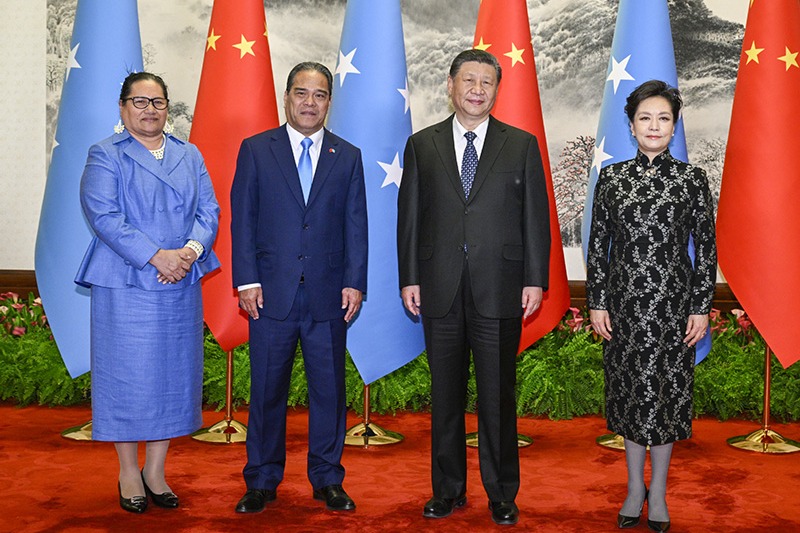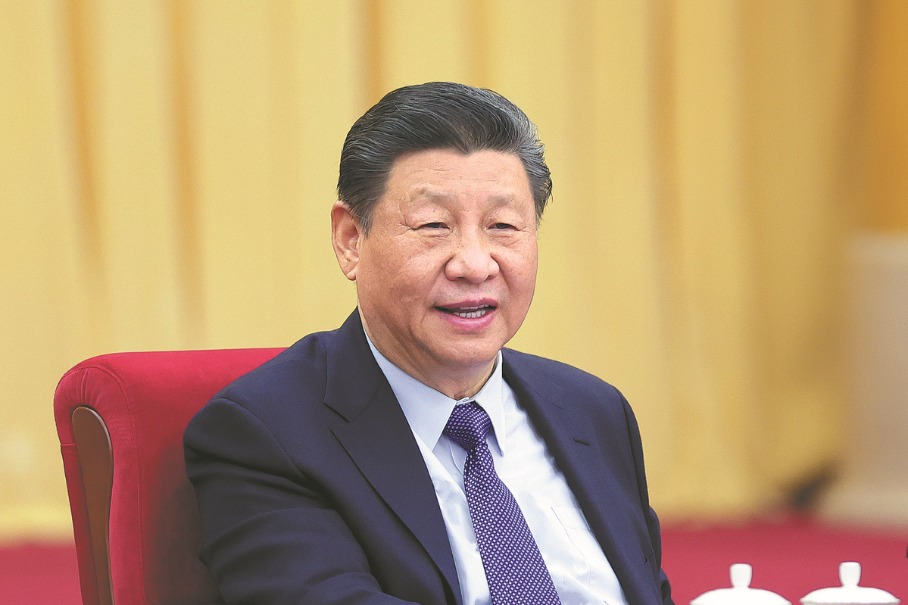Job seekers 'prefer hybrid work' to high pay

A surge in the flow of talent into Hong Kong has offered a ray of hope in reversing the city's acute labor shortage.
But experts have warned that the ability to retain these professionals, many of whom are on temporary two-year visas, would hinge on the availability of jobs and industry opportunities. On the other hand, hybrid work, which combines working from home with working in the office, offers a promising solution for companies seeking to retain top talent.
The international financial hub's working population saw a slight rebound to about 3.79 million from December to February, following a consecutive three-year decline, hitting rock bottom with 3.78 million in 2022, compared with 3.99 million in 2019. The recovery came as the SAR government has stepped up efforts to entice professionals back to the city through seven major talent attraction programs.
In his 2024-25 Budget speech, Financial Secretary Paul Chan Mo-po revealed that some 100,000 professionals had arrived in Hong Kong in the past year through these initiatives. Most of them hold initial permits that allow them a two-year stay, with the possibility of extension for another two or three years, provided they are still employed in the city.
Lawmaker Duncan Chiu notes that the decision to renew visas depends largely on Hong Kong's ability to offer sufficient career development and entrepreneurial opportunities. "Those coming to Hong Kong through these talent attraction programs do intend to stay longer after having put in so much effort to obtain their visas in the first place," he says.
Victor Kwok Hoi-kit, head of education and youth research at local think tank Our Hong Kong Foundation, said he believes that personal factors, such as homesickness and cultural exploration, influence a person's decision to stay or leave. Career prospects and accommodation, including housing and tax policies, also have a big say in their decisions.
The burgeoning market opportunities in the Guangdong-Hong Kong-Macao Greater Bay Area have provided the means to woo and retain talent in Hong Kong. A survey conducted by Michael Page Recruitment Group, which interviewed 277 C-suite (top management positions) and other senior management leaders across the Chinese mainland, Hong Kong and Taiwan, revealed that 53 percent of businesses in Hong Kong are setting their sights on the 11-city cluster, where over 86 million people generated about 14 trillion yuan ($1.97 trillion) in 2023. Companies planning to expand in the region are encouraged by the array of government-supportive policies, especially for the high-tech and innovation sectors.
Hong Kong companies find that offering workspace flexibility is a more effective strategy for attracting and retaining top-notch professionals than simply raising salaries in the global race for talent. According to Karen Ng, regional head of expansion and market lead for Hong Kong, Singapore, the Association of Southeast Asian Nations, and India at global human resources firm Deel, a growing number of job seekers in Asia prioritize hybrid working over higher pay when considering employment opportunities.
Capitalizing on the trend of local companies trying to secure overseas talent, the US-based company Deel opened a Hong Kong office in 2022. Deel's latest survey showed a 34 percent year-on-year surge in the number of Hong Kong companies hiring global talent in 2023.
According to Ng, many Asian companies are adopting hybrid work models as a long-term strategy to retain and attract overseas talent, particularly those seeking relocation while maintaining their current roles.
Remote work, especially those involved in full-time assignments overseas, however, could create technical challenges, such as visa requirements, which vary in different jurisdictions. Hong Kong has yet to introduce special visas to accommodate the growing trend of digital nomads.
The Top Talent Pass Scheme, launched in 2022, offers a potential solution for skilled individuals. It enables graduates of the world's top 100 universities or those with annual income of HK$2.5 million or above to obtain a Hong Kong visa for up to two years. Such a visa has no conditions of stay attached and allows individuals to work remotely in the SAR for a foreign company.
Chiu notes the growing trend of local companies offering a three-day in-office workweek, but says full-time remote working arrangements can be a short-term solution to Hong Kong's labor shortage problem.
"During the COVID-19 pandemic, some companies resorted to hiring overseas talent as some employees left. But as the pandemic subsided, enterprises that can find local employees are likely to reduce the number of overseas remote workers."




































